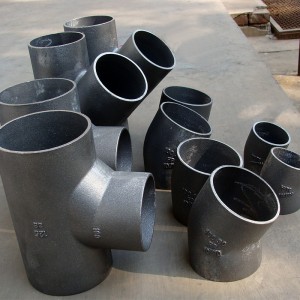- Afrikaans
- Albanian
- Amharic
- Arabic
- Armenian
- Azerbaijani
- Basque
- Belarusian
- Bengali
- Bosnian
- Bulgarian
- Catalan
- Cebuano
- China
- China (Taiwan)
- Corsican
- Croatian
- Czech
- Danish
- Dutch
- English
- Esperanto
- Estonian
- Finnish
- French
- Frisian
- Galician
- Georgian
- German
- Greek
- Gujarati
- Haitian Creole
- hausa
- hawaiian
- Hebrew
- Hindi
- Miao
- Hungarian
- Icelandic
- igbo
- Indonesian
- irish
- Italian
- Japanese
- Javanese
- Kannada
- kazakh
- Khmer
- Rwandese
- Korean
- Kurdish
- Kyrgyz
- Lao
- Latin
- Latvian
- Lithuanian
- Luxembourgish
- Macedonian
- Malgashi
- Malay
- Malayalam
- Maltese
- Maori
- Marathi
- Mongolian
- Myanmar
- Nepali
- Norwegian
- Norwegian
- Occitan
- Pashto
- Persian
- Polish
- Portuguese
- Punjabi
- Romanian
- Russian
- Samoan
- Scottish Gaelic
- Serbian
- Sesotho
- Shona
- Sindhi
- Sinhala
- Slovak
- Slovenian
- Somali
- Spanish
- Sundanese
- Swahili
- Swedish
- Tagalog
- Tajik
- Tamil
- Tatar
- Telugu
- Thai
- Turkish
- Turkmen
- Ukrainian
- Urdu
- Uighur
- Uzbek
- Vietnamese
- Welsh
- Bantu
- Yiddish
- Yoruba
- Zulu
Dec . 09, 2024 15:37 Back to list
die casting factory
Understanding Die Casting Factories An In-Depth Overview
Die casting is a manufacturing process where molten metal is forced into a mold cavity under high pressure. This method is widely used in various industries due to its ability to produce complex shapes with high precision and excellent surface finishes. The die casting factory is the heart of this process, integrating advanced technology, skilled labor, and a well-structured workflow to deliver high-quality metal products.
The Die Casting Process
The die casting process begins with the selection of materials. Common metals used include aluminum, zinc, magnesium, and sometimes copper alloys. Each metal has its unique properties, making them suitable for different applications. For instance, aluminum is well-loved for its lightweight characteristics, while zinc is preferred for its ability to be cast into thin walls.
Once the appropriate metal is chosen, it is melted in a furnace at high temperatures. The molten metal is then injected into a previously manufactured mold, known as a die. This die, typically made from high-strength steel, is designed to withstand the intense pressure during injection. After the metal fills the cavity, the die is cooled, allowing the metal to solidify. Once the cooling cycle is complete, the die is opened, and the finished part is ejected.
Advantages of Die Casting
Die casting factories offer numerous advantages over traditional manufacturing processes
. Some of these benefits include1. High Precision Die casting allows for tight tolerances and intricate designs that might be impossible to achieve through other methods. 2. Efficient Production The speed of the die casting process enables manufacturers to produce large volumes of parts in a relatively short period, increasing productivity.
3. Reduced Waste The process is highly efficient, with minimal material waste generated compared to machining methods. The leftover metal can often be reused.
4. Diverse Applications Die casting is used in various sectors, including automotive, aerospace, electronics, and consumer products, proving its versatility.
die casting factory

5. Excellent Surface Finish Parts produced via die casting often require little to no additional finishing, reducing both production time and costs.
The Role of Technology
Modern die casting factories are equipped with state-of-the-art machinery and technology. Computer Numerical Control (CNC) machines, robotic arms, and automated quality inspection systems enhance the efficiency and accuracy of the production process. Simulations and advanced modeling software are utilized to forecast potential issues and optimize designs before physical production begins.
Automation plays a crucial role in maintaining consistency and quality in die casting. Robotic systems are often used for feeding, ejection, and even assembly tasks, ensuring that human error is minimized. Moreover, real-time monitoring is implemented to track every phase of production, helping to maintain the desired standards.
Workforce and Skill Development
While technology is vital, the human element remains indispensable in die casting factories. Skilled technicians and engineers are necessary to operate complex machinery, conduct quality control checks, and innovate processes. Continuous training and development programs are essential to keep the workforce updated on the latest technologies and methods.
Die casting factories also prioritize safety, ensuring that employees work in a secure environment. Comprehensive safety protocols and equipment must always be followed to prevent accidents, especially given the high temperatures and heavy machinery involved.
Conclusion
Die casting factories represent a remarkable blend of advanced technology, skilled labor, and efficient processes that cater to the ever-growing demand for high-quality metal parts. As industries continue to evolve, die casting will likely remain a fundamental manufacturing technique, driving innovation and meeting the needs of diverse applications. Understanding the intricacies of die casting not only highlights its importance in modern manufacturing but also the potential for continuous development in this vital sector.
-
8mm Thin-Walled Cast Steel Manhole Cover Pallet Bottom Ring | Durable
NewsAug.04,2025
-
Premium Cast Iron Water Main Pipe: Durable, Corrosion-Resistant
NewsAug.03,2025
-
Durable Cast Iron Water Mains | AI-Optimized Systems
NewsAug.02,2025
-
High-Efficiency Propane Boiler for Baseboard Heat | Save Energy
NewsAug.01,2025
-
Premium Source Suppliers for Various Gray Iron Castings
NewsJul.31,2025
-
Durable Cast Iron Water Main Pipes | Long-Lasting
NewsJul.31,2025


